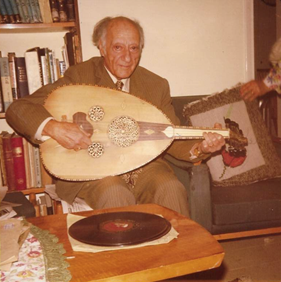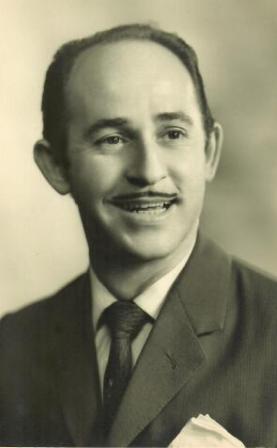Karel Reiner, composer and pianist, born June 27, 1910 in Žatec (Western Bohemia). Reiner studied law and musicology at the Charles University in Prague, and composition at the Master School under Josef Suk and Alois Hába. Aside from his interest in composition, Reiner was a talented pianist, dedicated to propagating contemporary music throughout Europe. Reiner concertized regularly and was a sought after accompanist until the Nazi occupying forces in the Czech territories issued a ban on public performances by Jewish musicians.
From 1939 until 1943, Reiner worked for the Jewish Community office in Prague, organizing musical activities. Reiner’s compositional output during these years was substantial; he completed works for orchestra, chorus, and piano, chamber music, and songs. He also composed incidental music for the avant-garde theater D-35 and the Esta gramophone company.
Reiner was a leading figure in the musical life of Terezín. He was primarily involved in producing dramas and comedies for the enjoyment of his fellow prisoners. He wrote and performed the incidental music for Edmund Rostand’s The Romancers, staged by Vlasta Schönová in the “Hamburg” barracks, and the musical background for a gala production of the play Švanda, the Bagpiper, by Josef Kajetán Tyl. Perhaps the most popular production with Reiner’s incidental music was the play Esther, dramatized by E.F. Burian, the director of the theater D-35.
Unlike most other prominent musicians imprisoned in Terezín, Reiner was not a member of the Freizeitgestaltung. He was assigned to work for the children’s welfare, which left him very little time to compose. However, Reiner did reintroduce his cycle of nursery rhymes, Kvuetovaný kůň (The Flower House), written in 1942 to the text of Nora Fried, and assumed work on a cycle of choruses based on the poetry of Christian Morgenstein.
Karel Reiner was one of the few musicians interned in Terezín to survive. After liberation, he returned to Prague to prepare a performance of Alois Hába’s opera, Matka (The Mother) at the Grand Opera in May of 1945. From 1945-7, he resumed his position as a contributing writer for the music periodical Rytmus, and began to publish articles in a number of international music journals. During the early postwar years, Reiner focused his attention on composing songs with socialist themes such as: The Rocket with a Red Banner; The War Atom; and No, Yankee, No. He also continued to compose symphonic and chamber works, and began to dabble in film music writing.
Reiner died in Prague on October 17, 1979.





